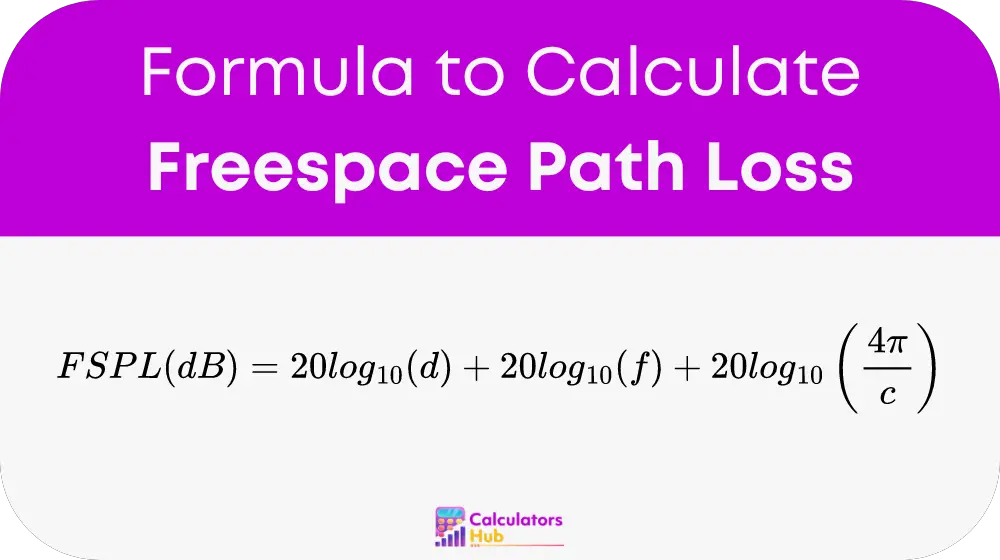Path loss refers to the reduction in power density of an electromagnetic wave as it propagates through space. The Freespace Path Loss Calculator helps predict this loss based on the distance between the transmitter and receiver and the frequency of the signal. This calculation is fundamental in telecommunications, radio broadcasting, and other fields relying on wireless communication.
Formula of Freespace Path Loss Calculator
The formula for calculating Freespace Path Loss (FSPL) is:

Where:
- FSPL is the freespace path loss in decibels (dB).
- d is the distance between the transmitter and receiver in meters (m).
- f is the frequency of the signal in Hertz (Hz).
- c is the speed of light in meters per second (approximately 3 x 10^8 m/s).
- log10 denotes the logarithm to base 10.
This equation emphasizes the relationship between the distance and frequency of the signal and their impact on the signal strength as it travels through space.
Useful Table for Quick Reference
To aid in practical applications, here is a table providing typical path loss values for common distances and frequencies:
| Distance (m) | Frequency (Hz) | Path Loss (dB) |
|---|---|---|
| 100 | 2.4 GHz | 100 dB |
| 500 | 2.4 GHz | 120 dB |
| 1000 | 2.4 GHz | 130 dB |
| 100 | 5 GHz | 110 dB |
| 500 | 5 GHz | 130 dB |
| 1000 | 5 GHz | 140 dB |
Example of Freespace Path Loss Calculator
For instance, if you want to calculate the path loss for a signal at 2.4 GHz traveling 500 meters, using the formula:
FSPL (dB) = 20 log10(500) + 20 log10(2400) + 20 log10(4π / 3e8)
= 66.98 dB + 67.60 dB + (-147.55 dB)
= 87.03 dB
This calculation shows that the signal will lose approximately 87 dB over that distance.
Most Common FAQs
It's widely used in designing and troubleshooting wireless communication systems to estimate signal reach and strength.
While highly effective for theoretical predictions in free space, actual results may vary due to environmental factors like buildings and trees.
Yes, the formula is applicable for any frequency within the operational range of typical wireless communication systems.